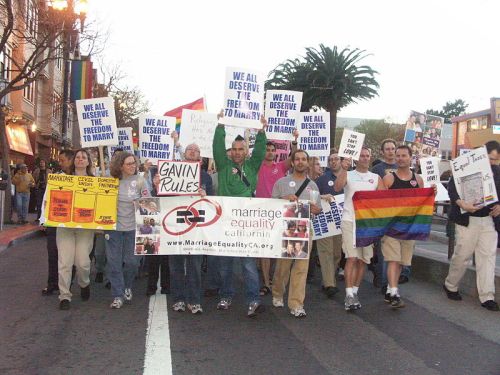I’ll be on “NightSide with Dan Rea” on WBZ Radio (AM 1030) tonight at 9 to talk about the Boston Phoenix Muzzle Awards for 2011. It’s an annual Fourth of July tradition that goes back to the late, great David Brudnoy. Hope you can tune in.
Month: June 2011 Page 1 of 3
In today’s Boston Globe, civil-liberties lawyer Harvey Silverglate and Globe columnist Scot Lehigh take on the issue of former Massachusetts Senate president Bill Bulger’s conduct with regard to his brother Whitey Bulger, the notorious mobster who’s been charged in connection with the killings of 19 people.
Silverglate argues that Bill Bulger, also a former president of UMass, was under no obligation to help authorities capture his brother, and that the testimonial privilege granted to spouses should be extended to other family relationships as well. Lehigh counters, “Faced with a moral dilemma, William repeatedly made the wrong choice, putting loyalty to his felonious brother over responsibility to his neighborhood, his constituents, or the larger public community whose university he led.” (Note: Silverglate and I collaborate occasionally, and the latest example will be online later today.)
On an entirely different matter, Slate media columnist Jack Shafer assesses Patch, AOL’s network of hyperlocal sites, and finds them lacking. “Besides being wildly expensive to create, hyperlocal news doesn’t seem to appeal to a broad audience,” Shafer writes.
That prompts a response from Howard Owens, publisher of The Batavian, an independent hyperlocal site in western New York. (Owens posts two comments; read the second one first.) Here’s an excerpt:
As my friend and fellow indie publisher notes, it’s only expensive if you have a big corporate structure to support and shareholder demands to meet. There are a handful of successful local online ventures that produce a ton of highly engaging, sought after, popular, memorable local news that do it at a fraction of the cost of the corporate entities.
I posted a brief comment as well, contending that Shafer’s complaint seems to be more about his lack of interest in community news than about anything intrinsic to Patch.
Instant update: Paul Bass, editor and founder of the New Haven Independent, just weighed in. And if you scroll way down, you’ll see a brief comment from another Media Nation favorite, Debbie Galant, co-founder and co-editor of Baristanet in Montclair, N.J.
No, really. It’s true. There they are, on the Rotary Pavilion outside the Peabody Institute Library. Buckwheat Zydeco performed in a free concert this evening, and a wicked good time was had by all.

Gay marriage advocates march in San Francisco
Following New York’s legalization of gay marriage, more than 11 percent of the U.S. population — 11.37 percent — now lives in an area where same-sex marriage is a right, according to U.S. Census data. New York, with a population of nearly 19.4 million, was a huge victory in the movement toward marriage equality. Take away New York, and the percentage drops to just a shade over 5 percent. Jurisdictions where gay-marriage is now a right, with populations, are:
- New York, 19,378,102
- Massachusetts, 6,547,629
- Connecticut, 3,574,097
- Iowa, 3,046,355
- New Hampshire, 1,316,470
- Vermont, 625,741
- Washington, D.C., 601,723
The total U.S. population is 308,745,538.
To this day, the largest setback was California’s Proposition 8, which killed off that state’s nascent right of gay marriage. If California’s more than 37 million people were added, then the proportion of the country where gay marriage is recognized would rise to 23.4 percent, or nearly one-fourth of the national population.
According to the New York Times, the next most likely states to recognize gay marriage are Maryland and Rhode Island. That would inch us up to nearly 13.6 percent. Progress, yes, but slow progress. Although I don’t believe the majority should hold sway over basic human rights, the fact is that 53 percent of Americans now favor same-sex marriage.
Gay marriage harms no one, and is a vitally important substantive and symbolic benefit to gay and lesbian couples. A trickle isn’t good enough. Let’s hope that what happened in New York opens the floodgates.
Photo (cc) by AJ Alfieri Crispin and republished here under a Creative Commons license. Some rights reserved.
With our television set broken, I’ve been cruising around for the best video coverage of Whitey Bulger. I think I’ve done a lot better with my laptop than I would have in front of the TV.
Lots of good stuff, but this one is particularly must-watch: Boston Globe columnist Kevin Cullen and former Globe reporter Dick Lehr talking about the FBI warning Cullen that Bulger might walk into his living room and “blow [his] brains out” around the time the Globe was revealing Bulger’s corrupt relationship with that agency.
“It wasn’t exactly an idle threat,” Cullen says. “I lived in South Boston. I was well-known in that community, especially by people of Mr. Bulger’s ilk.”

Whitey Bulger
I have a confession: the Whitey Bulger story has always bored me. No, not heart of it — the murders, the corrupt dealings with the FBI, the bad brother/good brother dynamic between Whitey and former Massachusetts Senate president Bill Bulger. That’s all incredibly compelling. But the years of incremental stories on various attempts to arrest him have left me cold.
Earlier this week, I barely glanced at the headlines over the FBI’s latest ruse — commercials on daytime televisions shows aimed at women who might recognize Bulger’s girlfriend, Catherine Greig. Someone who has followed the case much more closely than I dismissed it, saying it was pretty clear to him that Bulger was dead.
Well, he wasn’t, and the ads worked. Pretty amazing. As a few people have commented on Twitter, first Osama bin Laden, now Whitey Bulger.
Rather than directing you to specific news stories from today’s papers, I suggest you keep visiting the Boston.com and Boston Herald home pages, where the story is being continuously updated.
Why can’t we get players like this?




